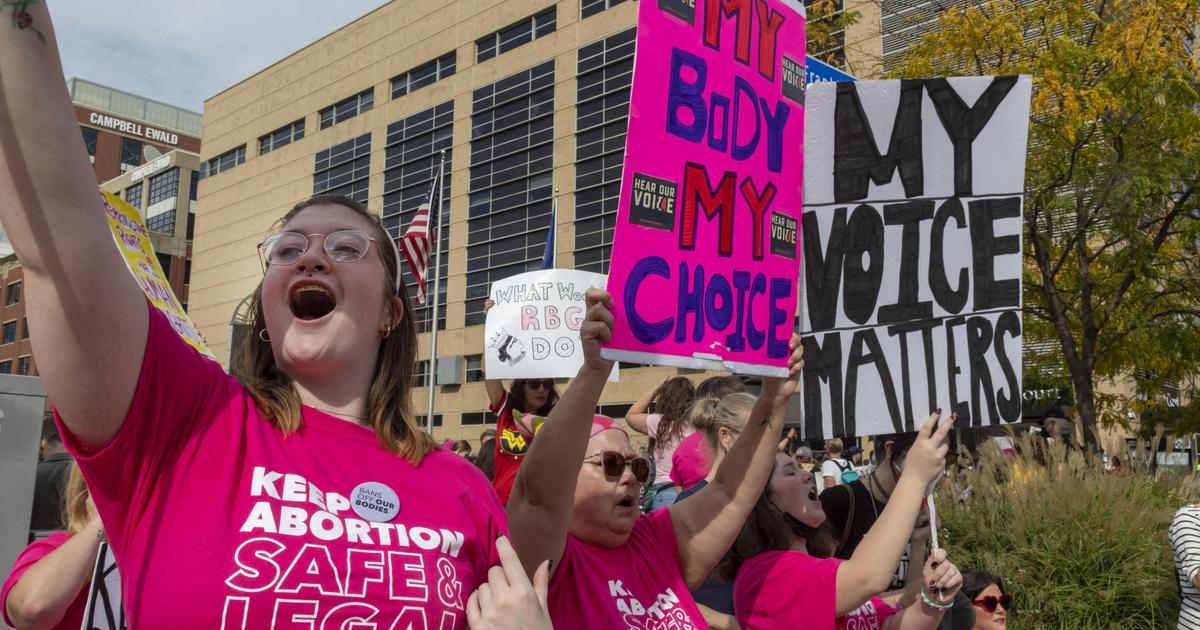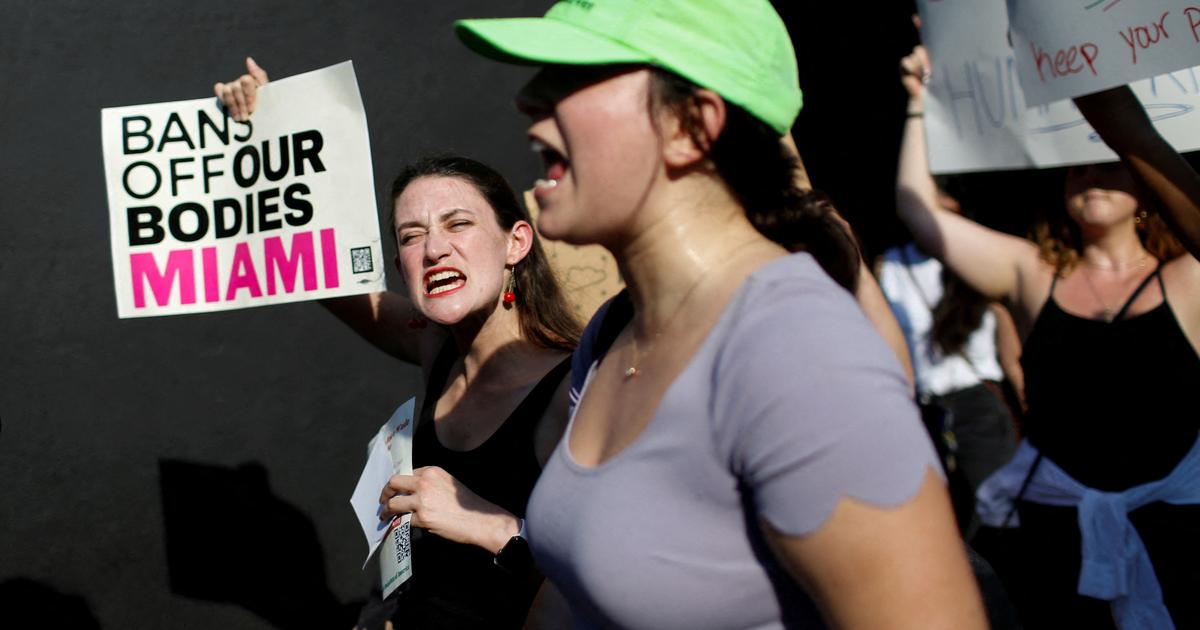Protesters dressed in the Handmaid's Tale protest at the US embassy in the UK on May 7. HENRY NICHOLLS (REUTERS)
Last week, a draft ruling by the Supreme Court of the United States appeared in the US media in a pending case that analyzes extremely restrictive legislation on abortion in Mississippi (
Dobbs v. Jackson Women's Health Organization
case ).
Under the draft, the Supreme Court would reverse the famous 1973
Roe v.
Wade
in which said court declared that abortion was a constitutional right throughout the country.
It must be made clear that the leaked document is not the judgment of the
Dobbs case
, but a preliminary document that may vary from the final version, which is expected soon.
Even so, this is one more sign of the worrying regression of the United States in the recognition and protection of the rights of people to make autonomous decisions, including access to abortion.
One of the most important elements of the
Roe v.
Wade
was the recognition of the absolute right of women to decide on the interruption of a pregnancy without state intervention during the first trimester of pregnancy.
During the second trimester, it recognized that the States had an interest in the life and health of pregnant women that was strong enough to allow the regulation of abortion in order to protect said interests.
Only during the third trimester did the States acquire an interest in the protection of prenatal life that allowed them to intervene and even prohibit abortion, unless the life or health of the pregnant woman was in danger.
In the nearly 70 years since the Supreme Court decided
Roe v.
Wade
there have been dozens of lawsuits trying to restrict his interpretation.
In 1992 the Supreme Court considerably reduced the right to privacy in relation to abortion in the case known as
Casey v.
Planned Parenthood,
by establishing that the States could have an interest in the protection of prenatal life from the beginning of pregnancy.
However, the ruling upheld
Roe v.
Wade
and indicated that the regulation of abortion could not be translated into an “undue burden” that prevented the exercise of the right to abortion.
Since then, various States have passed legislation imposing obstacles to access to abortion, such as the imposition of infrastructure modifications to the centers that provide abortion services and bureaucratic procedures for health professionals that are very difficult to comply with and unnecessary from a public health perspective, which has led to the near extinction of access to abortion in many places.
In the latest attempts to restrict access to abortion, in addition to the Mississippi case that the Court must rule on,
highlights a Texas law that prohibits abortion after six weeks of gestation and gives citizens the power to denounce those who have been involved in providing abortion services, even establishing the possibility of receiving monetary compensation for up to $10,000.
A total witch hunt that can only end like all witch hunts throughout history.
Unfortunately, more than twenty States controlled by legislators and governors who do not respect the right of individuals to make autonomous decisions within the framework of the right to privacy are impatiently waiting for the Supreme Court to reverse
Roe v.
Wade
to pass draconian laws against abortion that until now would probably be rejected by the US justice system.
If this happens, millions of pregnant people will be exposed to being criminalized for abortion, and even for homicide, for the mere fact of terminating a pregnancy.
Health professionals may also be exposed to criminal sanctions for providing abortion services.
The scenario that the United States is experiencing distances it from most of the countries that it would consider allies on other issues.
The tendency in democratic countries is to recognize that women cannot be put in the heroic situation of having to necessarily assume pregnancies and motherhood.
The Supreme Court of the United States has a couple of things to learn, for example, from the Supreme Court of Mexico and the Colombian Constitutional Court.
Two bodies that in the last year not only confirmed and expanded the right to abortion, but also did so based on respect for human rights.
International human rights law is clear in recognizing that access to abortion is part of the obligation of States to protect the right of people to a life free of violence, to life,
The path towards the prohibition of abortion that the United States is traveling today is even more absurd when the evidence irrefutably shows that its prohibition does not reduce the number of abortions and contributes to increasing the mortality and morbidity of pregnant people.
The supposed dichotomy of having to choose between protecting people's autonomy or protecting prenatal life is simply false.
The best way to protect prenatal life is by respecting the autonomy and rights of pregnant people.
For now,
Roe v Wade
remains law and abortion remains legal in the United States.
Whatever the decision, access to abortion will remain a human right.
The question is what paths the United States will follow to respect it.
Macarena Sáez Torres is executive director of the Women's Rights Division at Human Rights Watch.
Exclusive content for subscribers
read without limits
subscribe
I'm already a subscriber



/cloudfront-eu-central-1.images.arcpublishing.com/prisa/JKNMV5QC6BOTHMYCTVK4JK4J7I.jpg)





